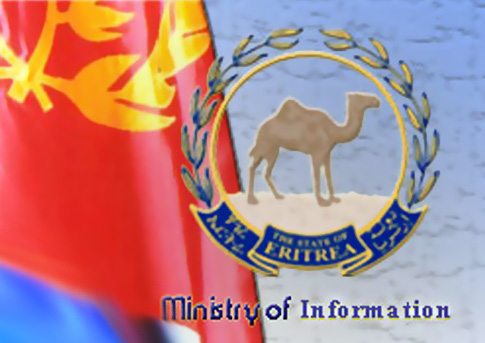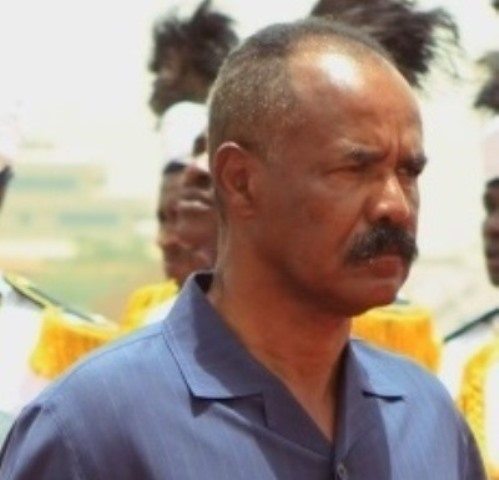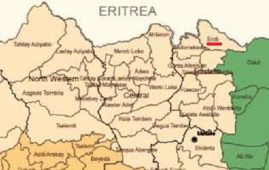The following communiqué was issued after the mini-summit on Somalia, held in New York, 23 September:
The Secretary-General of the United Nations, Ban Ki-moon, convened a high-level meeting on Somalia in New York on 23 September 2011. Participants included representatives of Burundi, China, Denmark, Djibouti, Ethiopia, France, Germany, Italy, Japan, Kenya, Norway, Russian Federation, Saudi Arabia, Somalia, Spain, Sudan, Sweden, Turkey, United Kingdom, United States, Uganda, African Union, European Union, League of Arab States and the Organization of Islamic Cooperation. Abdiweli Mohamed Ali, Prime Minister of the Transitional Federal Government of Somalia, and Jean Ping, the Chairperson of the African Union Commission, gave an update on recent political and security developments in Somalia, as well as the humanitarian situation.
Participants reaffirmed respect for the sovereignty, territorial integrity, political independence and unity of Somalia. They noted that recent political and security developments created an opportunity to further peace and reconciliation in Somalia, and stressed the importance of establishing broad-based and representative institutions through an inclusive political process. Participants welcomed the Kampala Accord and reiterated their support for the Djibouti Peace Agreement and the Somalia Transitional Federal Charter, which collectively constitute the political framework for a sustainable solution in Somalia.
Participants expressed appreciation for the international community’s humanitarian relief efforts in Somalia, including from African countries, Arab countries and other non-traditional donors, and urged them to continue these efforts. They underlined the need to address the root causes of famine and to reconstruct Somalia’s infrastructure and public institutions, including hospitals and schools. They also called for additional efforts in the provision of aid in south-central Somalia, “Galmudug”, “Puntland” and “Somaliland”.
Participants welcomed the recent adoption by Somali leaders of the Roadmap for ending the Somali transitional period by August 2012, consistent with the Djibouti Peace Agreement and the Somali Transitional Federal Charter. Participants welcomed the guiding principles of the Roadmap, namely, Somali ownership and inclusiveness; political outreach to all major Somali stakeholders, including the regional entities and Ahlu Sunna Wal Jama’a; full engagement of civil society; efficient use of resources; and adherence to monitoring and compliance mechanisms.
Participants urged Somali leaders to fully implement the Roadmap and to complete the tasks it contains within the agreed time frame in the following priority areas: security, including the adoption of effective maritime security and counter-piracy policy and legislation; completion of the constitution-making process, reform of Parliament and holding of elections, including for the posts of President and Speaker of the Parliament; national reconciliation; and good governance. Recognizing that the primary responsibility for the achievement of peace in Somalia rests with the Somali leadership, participants stressed the critical importance of compliance with the commitments undertaken in the Roadmap as a key requirement to ensure the continued international support to the Transitional Federal Institutions.
Participants welcomed the growing cooperation among the United Nations, African Union, Intergovernmental Authority on Development, League of Arab States and the Organization of Islamic Cooperation in promoting and facilitating discussions on the implementation of the Roadmap involving the Transitional Federal Institutions, Somali civil society, local and regional administrations, as well as regional and international partners. Participants also welcomed the expeditious formation of the Technical Committee for the implementation of the Roadmap. They committed to mobilizing international support for the implementation of the Roadmap, in line with a Resource Mobilization Plan to be agreed by the Transitional Federal Government and the international community.
Participants stressed the importance of conducting popular consultations on the draft constitution and the reform of Parliament to enable adoption of a new constitution by a representative body without delay. They called on the Transitional Federal Government to build on recent efforts in Garoowe and Gaalkacyo, notably the implementation of the cooperation framework with Ahlu Sunna wal Jama’a, and to bring other groups that renounce violence to join the peace process. They also welcomed the commitments made by the “Galmudug” and “Puntland” administrations to stop the fighting in and around Gaalkacyo and to increase cooperation between the two regions. Participants invited the regional entities to engage constructively with the Transitional Federal Institutions for the stabilization of Somalia.
Participants condemned all violence, including terrorist attacks on the Transitional Federal Government, the African Union Mission in Somalia (AMISOM), the civilian population and the obstruction of the delivery of humanitarian aid. They urged opposition groups to lay down their arms, join the peace process and ensure full, safe and unhindered delivery of humanitarian aid. Participants also called upon all States, particularly those in the region, to fully implement the arms embargoes imposed by the United Nations Security Council on Somalia and Eritrea.
The meeting affirmed the importance of the development of Government institutions and civilian capacity-building across Somalia. They urged the international community to mobilize additional support to the Transitional Federal Government, as well as the local and regional administrations in this regard. Participants urged early endorsement of the draft National Security and Stabilization Plan by the Transitional Federal Parliament. They called on the Transitional Federal Institutions to redouble their efforts to develop Somali national security forces with effective command-and-control structures and procedures. They encouraged the Transitional Federal Institutions to adopt additional accountability and transparency measures, and to facilitate and coordinate international humanitarian aid delivery and relief assistance.
Participants commended the significant security gains recently made in Mogadishu by Transitional Federal Government forces with the support of AMISOM, and expressed gratitude to Uganda, Burundi and the Transitional Federal Government forces for the sacrifices they continue to make to advance the cause of peace and stability in Somalia. Participants stressed the importance of consolidating these hard-won gains and preventing a re-emergence of warlords. In this regard, they agreed to mobilize support for the implementation of the Transitional Federal Government’s Mogadishu Security Plan and the United Nations Mogadishu Stabilization and Rehabilitation Plan. Participants also recalled the commitments made in the Istanbul Declaration (May 2010). They welcomed Turkey’s intention to host a follow-up conference to the Istanbul meeting and urged support for this effort.
The meeting expressed concern at the expanding reach and increased levels of violence employed by pirates and agreed that anti-piracy efforts needed to focus simultaneously on deterrence, security and rule of law, and overall development efforts. In this regard, the meeting took note of the communiqués of the Contact Group on Piracy Off the Coast of Somalia. Participants welcomed the work of the Kampala Process as well as the relevant benchmarks agreed on in the Roadmap, and encouraged the concerned parties to engage constructively and cooperatively in the process.
Participants emphasized the need for the Transitional Federal Institutions to continue taking concrete steps to improve the situation of human rights in Somalia. In this connection, they welcomed the inclusion in the Roadmap of measures for the protection of civilians in armed conflict and adherence to international humanitarian and human rights laws, including measures to prevent the presence of children in the armed forces. The meeting also stressed the role of women’s leadership in peacebuilding and in conflict resolution, as called for by Security Council resolutions 1325 (2000) and 1889 (2010), as well as in the relevant provisions of the Somali Transitional Federal Charter, particularly the increased representation of women in public institutions.
Participants stressed the importance of predictable, reliable and timely resources for AMISOM in order for it to better fulfil its mandate. They urged as a matter of priority the rapid deployment of the remaining 2,500 troops for AMISOM to reach its authorized level of 12,000, and expressed support for the efforts being deployed by the African Union and donors to facilitate the deployment. Participants urged the international community, including new donors, to contribute urgently and without caveats to the United Nations Trust Fund for AMISOM, or make bilateral donations in support of AMISOM, particularly for contingent-owned equipment, force enablers and multipliers, and welfare provisions. The meeting urged donors to work closely with the United Nations and the African Union to ensure that the appropriate funds and equipment were provided promptly.
The meeting took note of the steps being taken by AMISOM to protect civilians, including, in particular, corrective measures where necessary. The meeting encouraged further efforts in this regard, such as enhanced support to the development of the Somali Police Force and the rapid and full deployment of the mandated (270) AMISOM police elements. Participants supported the intention of AMISOM to establish a guard force dedicated to the protection of United Nations and international staff, international visitors and specific properties in Mogadishu.
The meeting welcomed the efforts of the African Union, Intergovernmental Authority on Development, League of Arab States, Organization of Islamic Cooperation and other regional organizations to promote peace and stability in Somalia. Participants encouraged the United Nations and the African Union to further increase their presence in Mogadishu and other parts of Somalia. The meeting welcomed the re-opening of the Turkish Embassy in Mogadishu, as well as the intention by Italy and the United Kingdom to do the same. Participants called upon members of the international community to scale up their diplomatic presence in Mogadishu and their support to the efforts of the Transitional Federal Institutions aimed at consolidating peace and stability in the newly liberated areas in central and south Somalia.
************
Check the Somalia Archive for related posts.






runtii websadka aad buu macqull u yahay waana kuwa og dhaw oo runta sheego
Thanks Daniel Berhane for the share